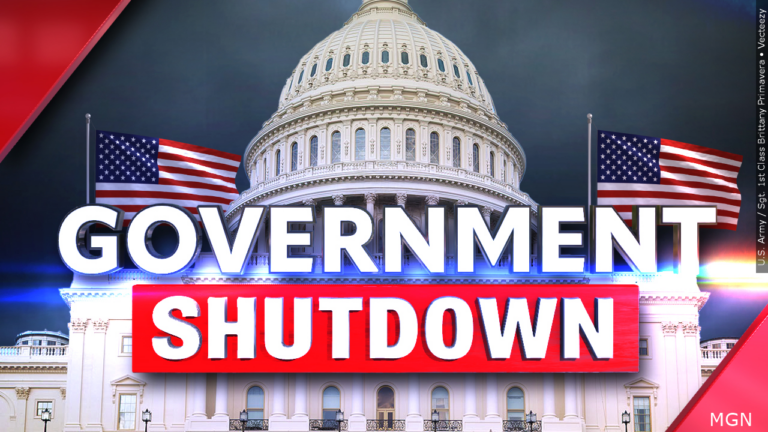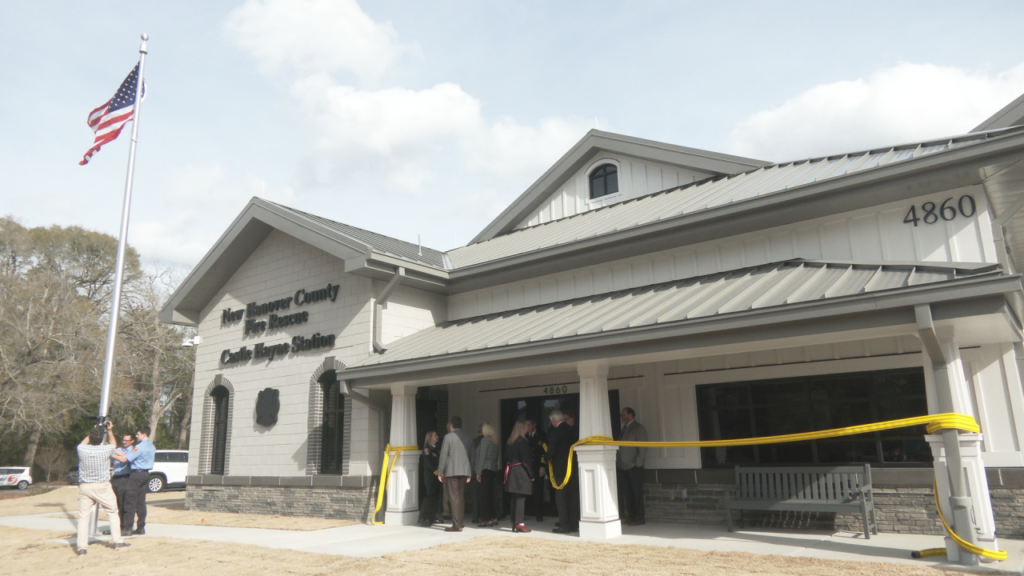Frustrated lawmakers say lack of trust is making it harder to end the government shutdown

WASHINGTON (AP) — A president looking to seize power beyond the executive branch. A Congress controlled by Republican lawmakers unwilling to directly defy him. And a minority party looking for any way to fight back.
The dynamic left Washington in a stalemate Thursday — the ninth day of the government shutdown — and lawmakers openly venting their frustration as they tried to gain traction without the trust that is typically the foundation of any bipartisan deal.
“To have good-faith conversations, you have to have trust. There’s a real challenge of trust,” said Rep. Brad Schneider, chair of the New Democratic Coalition, a pragmatic group of House Democrats.
Groups of lawmakers — huddled over dinners, on phone calls, and in private meetings — have tried to brainstorm ways out of the standoff that has shuttered government offices, kept hundreds of thousands of federal employees at home and threatened to leave them without a scheduled payday. But lawmakers have found themselves running up against the reality that the relationship between the two parties is badly broken.
The frustration was evident this week as House Speaker Mike Johnson and House Democratic leader Hakeem Jeffries, on separate occasions, engaged in tense exchanges in the Capitol hallways with members of the opposing party.
“We’re in an environment where we need more than a handshake,” said Sen. Chris Coons, a Delaware Democrat who has engaged in talks with Republicans.
President Donald Trump and Republicans have so far held to the stance that they will only negotiate on Democratic demands around health care benefits after they vote to reopen the government. They also say Senate Democratic leader Chuck Schumer is beholden to the left wing of his party and only staging the shutdown fight to stave off a primary challenge.
Republicans jump on Schumer’s comments
Schumer, a New York Democrat, told Punchbowl News in an interview that Democrats were winning the shutdown fight, saying, “Every day gets better for us.”
Republicans quickly seized on those comments, arguing it showed that Schumer is approaching the shutdown with purely political motives.
Senate Majority Leader John Thune stood on the Senate floor flanked by a poster printed with Schumer’s words.
“This isn’t a political game. Democrats might feel that way, but I don’t know anybody else that does,” said Thune, a South Dakota Republican. “The longer this goes on, the more the American people realize that Democrats own this shutdown.”
Schumer, in his own floor speech, responded that it was Trump and Republicans who are “playing with people’s lives.”
“Every day that Republicans refuse to negotiate to end this shutdown, the worse it gets for Americans and the clearer it becomes who is fighting for them,” said the New York senator.
When a handshake deal is not enough
Democrats have insisted they can’t take Trump at his word and therefore need more than a verbal commitment for any deal.
Conflicts over spending power had already been raging before the shutdown as the White House pushed to assert maximum power over congressionally approved budgets. The White House budget office had canceled scores of government contracts, including cutting out the legislative branch entirely with a $4.9 billion cut to foreign aid in August through a legally dubious process known as a “pocket rescission.”
That enraged Democrats — and disturbed some Republicans who criticized it as executive overreach.
“I hate rescissions, to be honest with you, unless they’re congressionally approved,” said Sen. Thom Tillis, a North Carolina Republican.
Matt Glassman, a fellow at the Government Affairs Institute at Georgetown University, said the president’s use of rescissions was “blowing up the underlying dynamic of the bargaining” because it inserts intense partisanship into the budget appropriations process that otherwise requires compromise, particularly in the Senate.
Then, as the government entered a shutdown, Trump’s budget director Russ Vought laid out arguments that the president would have even more power to lay off workers and even cancel pay due to furloughed federal workers once the funding lapse is solved. Vought has also announced that the administration was withholding billions of dollars for infrastructure projects in states with Democratic senators who have voted for the shutdown.
Trump has cast Vought’s actions as the consequences of Democratic obstruction, even sharing a video that depicted him as the grim reaper. But on Capitol Hill, there has been an acknowledgment that the hardball tactics are making it harder to negotiate.
“I think with senators, carrots work better than sticks,” said Sen. Kevin Cramer, a North Dakota Republican.
One Democratic idea may win GOP support
Before they vote to reopen the government, Democrats’ main demand is that Congress take up an extension of tax credits for health plans offered on Affordable Care Act marketplaces. Trump has sounded open to a deal, saying that he wants “great health care” for Americans.
What’s received less attention is that Democrats also want new safeguards in the law limiting the White House’s ability to claw back, or rescind, funding already approved by Congress. While final appropriations bills are still being worked out, Republicans have been open to the idea.
“When you end the shutdown and get back to regular order within the appropriations bills, there’s very clear language about how we feel about rescissions,” said Sen. Mike Rounds, a Republican on the Senate Appropriations Committee. “I think you’ll find hard, solid support from Republicans to see that what we agree to will be executed on.”
In the meantime, the main sticking point for lawmakers this week has been finding any agreement on extending the health care subsidies.
The consequences of an extended shutdown
As the shutdown drags on without sign of significant progress to ending the impasse, lawmakers are looking ahead to the dates when federal employees will miss a payday.
Active-duty military troops would miss a paycheck on Oct. 15. Some lawmakers are getting nervous about both the financial implications for the troops and the political blowback of allowing soldiers to go without pay.
As House Speaker Mike Johnson fielded questions on C-SPAN Thursday morning, one caller pleaded with him to pass legislation that would allow the military to get paid during the government shutdown.
The woman, identified as Samantha, said her husband serves in the military and that they “live paycheck to paycheck.”
She pleaded with Johnson to call the House back to Washington, saying, “You could stop this.”
Johnson said he was sorry to hear about her situation, blamed Democrats for refusing to pass a stop-gap spending bill and added, “I am angry because of situations just like yours.”




